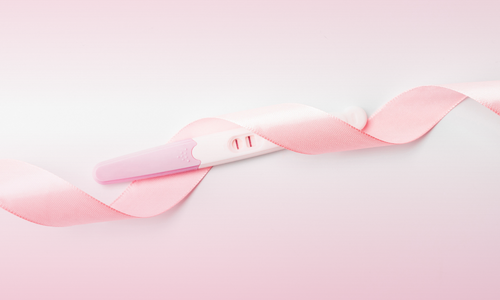Pregnancy after breast cancer treatment
Friday, October 28, 2022
Breast cancer is the most common cancer diagnosed in women. Some women are diagnosed with breast cancer at an age when they may be looking forward to having children. This can raise concerns about whether it is possible and safe for a woman to have children following treatment for breast cancer.
Many women are able to become pregnant after being treated for breast cancer. However, some treatments can make it harder to get pregnant. If you think you might want to have children one day, or just want to keep your options open, the best time to talk to a fertility doctor about this is before you begin breast cancer treatment.
Women with breast cancer typically have several specific concerns related to the impact of treatment on future motherhood. Their questions include:

1- How can cancer treatments affect my fertility?
Treatments can affect a future pregnancy in many ways:
- Radiation therapy may affect the support cells and blood supply of the uterus. It also may increase the chances of miscarriage, early birth, low birth weight, and other problems.
- Chemotherapy may affect the function of the ovaries functioning of the ovaries, reducing the number and quality of eggs, which can sometimes cause immediate or delayed infertility.
2- Is it possible for me to have a successful pregnancy?
Many women have had successful pregnancies and have delivered healthy infants following adjuvant breast cancer treatments (chemotherapy and/or anti-estrogen therapies given to reduce relapse risk). However, it is not possible to know for sure whether a successful pregnancy in an individual breast cancer survivor is possible, because many factors determine the likelihood of successful pregnancy. These factors include:
- Maternal age
- Pre-treatment maternal fertility status
- Fertility status of the male partner
- Method of attempting pregnancy
- Measures used to protect maternal fertility during treatment include egg freezing or embryo freezing.
3- Do I need to wait before trying for a baby?
Many specialists advise women to wait for at least two years before becoming pregnant. The chance of the cancer returning can lessen over time, and you may be most at risk for it in the first two years following your diagnosis. Waiting for this long may not be appropriate for everyone. If you’re thinking about getting pregnant before this two-year period is up, talk to your specialist.
If you’re offered hormone therapy, it’s usually taken for five to ten years, by which time you may be facing natural menopause. Therefore, some women choose to take a break from hormone therapy if they want to try to get pregnant.
Generally, women are not recommended to get pregnant for at least four to six months after chemotherapy treatment, because any damaged eggs will leave the body within those first 6 months.
4- Is it safe for the baby if I get pregnant after breast cancer treatment?
As with every pregnancy, prenatal care is of the utmost importance. There are some additional concerns for pregnancy in breast cancer survivors: These pregnancies have been shown to result, on average, in infants with lower birth weight, smaller size for gestational age, greater likelihood of preterm delivery, and greater likelihood of Cesarean section. However, babies born to women who have received chemotherapy to reduce their risk of relapse are most often healthy. These babies have no greater likelihood of genetic defects or post-partum illness than what is seen in babies born to women without a history of breast cancer.
5- Can I breastfeed after breast cancer treatment?
If you have had breast surgery and/or radiation, you might have problems breastfeeding from the affected breast. This might include reduced milk production in that breast as well as structural changes that can make breastfeeding painful, or make it harder for the baby to latch onto the breast. Still, many women are able to breastfeed.
If you are still taking any medicines to treat your breast cancer (such as hormone therapy), it’s very important to talk with your doctor before trying to breastfeed. Some drugs can enter the breast milk and might affect the baby.







